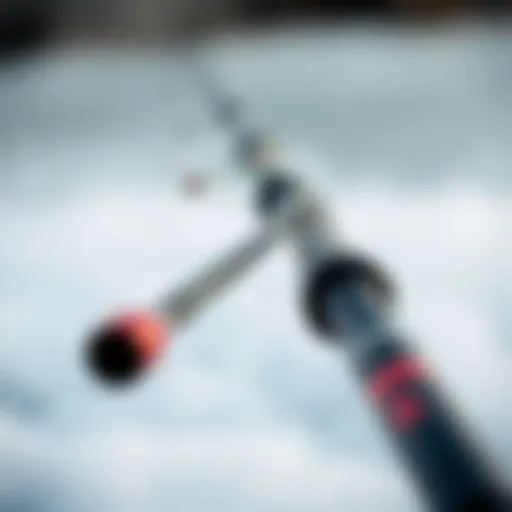Exploring the Three-Day Water Cleanse: Benefits and Insights


Intro
In a world filled with diets ranging from keto to paleo, the three-day water cleanse stands out, not just for its simplicity but also for the intrigue it generates in health circles. The allure of such a cleanse often lies in the promise of rejuvenation and a reset for both body and mind. But what exactly does this journey entail? This article takes a deeper dive into the three-day water cleanse, peeling back the layers of its principles, benefits, and the science underlying the practice itself.
With the hustle and bustle of daily life, it's easy to neglect our body's need for a reset. Understanding what a three-day water cleanse can offer might just make the difference between feeling sluggish or invigorated. It's not merely about abstaining from solid food; it's about embarking on a temporary journey where water becomes your sole companion.
As we navigate through this cleanse, we’ll explore the potential benefits, assess its effectiveness, and address practical considerations that one might encounter along the way. Moreover, we’ll touch on essential questions surrounding safety, sustainability, and the individual differences that play a role in cleansing. Expect an insightful read that aims to equip you with the knowledge necessary to make an informed decision about this approach to wellness.
Ready to get your feet wet in the world of water cleansing? Let's plunge into the depths of what it means to embark on a three-day water cleanse.
Understanding the Water Cleanse
In today’s fast-paced world, taking a moment to reconsider our relationship with food has become vital, and the water cleanse offers a unique perspective into this. This method encourages us to hit the pause button on our usual eating habits and to reflect on the essence of nourishment through hydration. Understanding the water cleanse isn't merely about shedding pounds; it's about tapping into deeper health benefits, cleansing our bodies of toxins, and allowing us to reconnect with our physical and mental selves.
Definitions and Concepts
To grasp the importance of a water cleanse, one must first establish clear definitions. At its core, a water cleanse involves consuming nothing but water for a specified period, typically three days. The primary goal? To reset your body. During this phase, the body is believed to divert its energy away from digestion and towards detoxification and repair. Unlike many diets that revolve around constraints and caloric limitations, this approach pivots on the simple yet profound act of abstaining from solid food.
Key aspects of the water cleanse include:
- Hydration Focus: Prioritizing water over food can be refreshing, as water itself is crucial for countless bodily functions.
- Detoxification: As you cease food intake, your body gets a break from processing various additives and chemicals commonly found in modern diets.
- Mindful Eating Reflection: The cleanse provides a moment for introspection, allowing individuals to reconsider their eating patterns and habits.
A water cleanse is not about deprivation. It's about transformation and regeneration. And while it may seem straightforward, it carries complexities that each individual may experience differently.
Historical Context
Looking back, the concept of cleansing through fasting isn't novel. Ancient cultures revered water fasting not just for health benefits but as a spiritual practice. Historians suggest that water fasting was prevalent among various civilizations, from the Greeks to the Egyptians, where it was often used for healing purposes. Even in religious contexts, fasting has been encouraged—think of practices such as Lent or Yom Kippur.
The re-emergence of such methods in modern wellness circles can be traced to our increasing interest in holistic and natural healing. As we seek answers amidst cluttered diets and driven lifestyles, the water cleanse serves as a reminder of simplicity and clarity. It invites individuals to look back at ancient practices to solve contemporary issues, embodying a philosophy of health that resonates on both physiological and emotional levels.
By understanding how the water cleanse operates historically and in modern contexts, individuals can better appreciate its role and relevance in current wellness discussions.
The Three-Day Framework
The three-day water cleanse serves as a structured approach for those seeking a fresh start or a reset. It holds significant relevance in the realm of wellness practices, from athletes looking to enhance performance, to travelers who want a detox that fits into a busy schedule. This framework not only promotes physical rejuvenation but also serves as a mental and emotional reset. Here, we’ll delve into the elements and benefits of this approach, ensuring a comprehensive understanding of its significance.
Day One: Preparation and Initiation
Day one is crucial. It’s the time when you'll be setting the stage for what’s to come. The idea is to prepare both your body and mind. Beginning with a light meal that incorporates fruits or softer veggies can help ease the transition, and drinking plenty of fresh water in advance makes it easier on your system when the real cleanse hits. It’s like warming up before a big race—the effort preps your body for the challenges ahead.
During this phase, one should get into the right headspace. Setting intentions can make all the difference. Perhaps write down what you hope to achieve or any emotional baggage you're ready to release. This period can also involve lighter activities, such as yoga or a serene walk, which helps calm the mind. Being intentional with your actions here is key to carrying momentum into the next two days.
Day Two: The Core Cleansing Phase
This is the heart, quite literally, of the three-day cleanse. With the body stripped down to just water, the physical experience can vary. Many people find that they experience hunger pangs rising and falling like tides. It’s essential to ride those waves rather than fight them—embracing this discomfort can lead to clarity.
Physical sensations may include:
- Increased thirst: Your body is likely to send signals demanding hydration.
- Fatigue or lethargy: You might feel drained, and that’s perfectly normal.
- Mental clarity: Interestingly, many report sharper focus after the initial discomfort wears off.
During this day, listen to your body. If it calls for more rest, take it. Alternatively, gentle stretching or meditation can be beneficial. Engaging in mindful breathing can assist in managing any cravings. The essence of day two lies in surrendering to the process.
Day Three: Reflection and Recovery
Now, moving into the final stretch, day three allows for an invaluable reflection. This is a time to consider your experience and its implications on your physical and mental state. After two days of water consumption, you may notice quite a shift in how you feel. It’s imperative to gently ease back into eating, starting with broths or fruits—think of your body as a delicate flower opening back up.
When transitioning away from the cleanse, adopt a slow pace to avoid overwhelming your system.
Post-cleanse, take a moment to jot down observations. How do you feel physically? Any changes in mood or mental clarity? Some use this time to create a plan for integrating healthy habits moving forward.
Considerations for day three may include:
- Gradual reintroduction of foods: Avoid heavy meals right away.
- Assessing emotional clarity: Was there a surprise insight during the cleanse?
- Hydration beyond the cleanse: Keep drinking water to maintain the benefits achieved.
The three-day framework, intricately designed, allows not just for physical detoxification but also for mental and emotional renewal. Each day builds on the last, creating a coherent journey that proves to be enriching for body and spirit.
Potential Benefits of a Water Cleanse
Exploring the potential benefits of a water cleanse provides valuable insights into why individuals might choose to undertake such a practice. The notion of cleansing underscores the body's ability to regenerate and restore itself. Water, a fundamental element for life, plays a pivotal role in this process. By dedicating three days to a structured water cleanse, participants often aim for a variety of improved outcomes that extend beyond just physical health.
The core benefits associated with a water cleanse can be multi-dimensional. They reach into physical health, mental clarity, and even emotional well-being. Each benefit bears consideration, not only for its personal impact, but also for its broader implications on lifestyle choices and future health decisions.
Physical Health Improvements
When discussing physical health, the advantages of a water cleanse can seem compelling. First, water assists in flushing out toxins that might accumulate in the body over time. This might lead to an energized feeling post-cleanse, as many find that their bodies feel lighter and more rejuvenated.


Besides detoxification, regular hydration is a key component of maintaining healthy bodily functions. A three-day cleanse typically prompts a reassessment of one’s typical dietary habits. After three days of purely water consumption, participants may experience distinct changes:
- Improved Digestion: You may notice your gut working more efficiently once normal eating resumes.
- Enhanced Skin Clarity: A high water intake often reflects on the skin, giving it a fresher, more radiant appearance.
- Weight Management: While the results can vary, some individuals report a slight weight loss that may encourage healthier choices long afterward.
Mental Clarity and Focus
Mental clarity is another pillar of the potential benefits associated with a water cleanse. Through the initial phase of abstaining from food, many report experiencing a shift in mental acuity. The first day might feel foggy as the body adjusts. However, by the second or third day, individuals often report feeling sharper.
Some of the aspects tied to mental clarity during a water cleanse include:
- Heightened Focus: Those undergoing the cleanse might find their capacity to concentrate markedly enhanced. Absence of processed foods and sugars appears to facilitate this change.
- Meditative Insights: Participants often take this time to reflect, some sharing that they discover a sense of calm and mindfulness, situating themselves better for self-improvement.
Emotional Well-Being
Emotional aspects of wellness can certainly be intertwined with the physical and mental effects of a cleanse. Many individuals note a kind of emotional reset during a three-day cleanse. It’s often said that taking a break from regular eating habits can help reshape one’s relationship with food.
- Coping Mechanisms: The discipline required for a water cleanse may aid in fostering better coping strategies for stress.
- Increased Awareness: Individuals can gain insights into their emotional triggers related to food consumption, which can be enlightening for future relationships with food.
Expounding on these benefits can help in promoting a holistic understanding of what a water cleanse entails. Each individual’s experience will vary, influenced by diverse factors such as lifestyle, readiness, and body response. In essence, the physical, mental, and emotional benefits of a water cleanse encourage many to explore it as a significant component of a broader wellness journey.
Scientific Insights on Water Fasting
Understanding the scientific basis for water fasting provides insight into why many individuals choose to embark on a three-day water cleanse. The physiological processes that occur during fasting are significant, as they offer a glimpse into how our bodies respond when we temporarily abstain from food and rely solely on water. This exploration reveals a landscape full of benefits, metabolic changes, and cellular rejuvenation.
Metabolic Responses
The body’s metabolic processes undergo profound changes during a water fast. Initially, when food intake halts, the body taps into glucose reserves, providing energy for a short period. As these reserves dwindle, usually within the first 24 hours, the body transitions to fat as the primary energy source through a process called ketosis. This shift can lead to several prominent effects:
- Increased Fat Oxidation: The body starts burning stored fat for energy, contributing to weight loss, which is often a key motivator for many undertaking a cleanse.
- Improved Insulin Sensitivity: Intermittent fasting has been shown to enhance insulin sensitivity, potentially reducing the risk of type 2 diabetes.
- Enhanced Autophagy: This process promotes cellular repair by removing damaged components, thus improving overall cellular functioning.
These metabolic adaptations can lead to enhanced energy levels and improved mental clarity, which are often welcomed effects of a three-day cleanse.
Detoxification Mechanisms
Detoxification during a water fast is often a focal point for many participants. While the term is frequently used, understanding the biological basis is essential. Upon initiation of a water cleanse, several mechanisms engage to facilitate detoxification:
- Kidney Function: The kidneys play a crucial role in filtering blood, excreting waste products and excess substances. With sufficient hydration, they can effectively flush toxins from the body.
- Liver Function Enhancement: The liver is the body’s filtering system, responsible for detoxifying the blood. Water fasting can lead to increased liver enzyme activity, enhancing its efficiency.
- Natural Elimination: Increased water intake encourages regular urination and bowel movements, which are vital for removing toxins.
Ultimately, this cleansing process allows the body to recover from the excesses of modern diets, making individuals feel lighter and rejuvenated.
Impact on Cellular Health
Cellular health is a cornerstone of effective physical and mental well-being. During a three-day water cleanse, several factors come into play that potentially enhance cellular regeneration and function:
- Hormesis: Mild stress from fasting triggers a hormetic response, where cells adapt and improve their resilience against more significant stressors.
- Stem Cell Activation: Some studies indicate that fasting can stimulate the production of stem cells, which contribute to cellular repair and regeneration.
- Reduced Inflammation: Studies suggest fasting lowers levels of inflammation, which is linked to numerous chronic conditions like heart disease and autoimmune disorders.
Encouraging cellular health not only aligns with physical rejuvenation but also benefits mental clarity, contributing to the holistic positives of a water cleanse.
In a nutshell, scientific insights reveal that a three-day water cleanse is not merely about abstaining from food; it's about harnessing the body’s innate ability to heal, detoxify, and rejuvenate at a cellular level.
Ultimately, understanding these scientific principles can empower individuals to make informed choices about their health and well-being.
Potential Risks and Precautions
Embarking on a three-day water cleanse may seem appealing, but one must tread carefully. It's not merely about sipping water for three consecutive days; rather, it involves understanding potential risks and taking necessary precautions. Without a doubt, an informed approach cultivates safety and efficacy in the cleansing process.
Health Complications
When considering a water cleanse, it's essential to acknowledge the possible health complications. Individuals with pre-existing medical conditions such as diabetes, kidney disease, or heart problems face significant risks. Prolonged fasting can lead to electrolyte imbalances, which in turn may manifest as dizziness, weakness, or fainting. Moreover, the sudden absence of food can trigger nausea or headaches, particularly for those accustomed to a regular eating schedule.
"A cleanse without understanding is like surfing without a board; you're likely to wipe out."
The immune system also becomes a concern; the body requires nutrients to function optimally, and depriving it of these can hinder its ability to fight off infections. Additionally, although many claim that a water cleanse helps to reset digestion, it can instead provoke distress for some individuals who may find their gastrointestinal system rebelling once normal eating resumes.
Recommended Medical Supervision
For anyone contemplating or embarking on a water cleanse, consulting a healthcare professional is strongly advisable. Medical supervision ensures that any underlying health issues are addressed and monitored throughout the process. Such supervision isn't just a safety net; it enhances the integrity of the cleansing journey. This could be as simple as checking in with a family doctor or engaging a nutritionist who specializes in fasting practices.
In some cases, practitioners may suggest adjustments or alternatives to a strict water-only cleanse, such as a modified fast that includes broths or herbal teas. Listening to expert advice can clarify how to approach your cleanse safely, ensuring you’re not ‘throwing the baby out with the bathwater’ when it comes to your well-being.
Identifying Individual Suitability
Not every body is cut out for a water cleanse, and self-awareness is key. Identifying individual suitability entails recognizing one’s overall health status and personal lifestyle. It's prudent to consider factors like age, weight, activity level, and mental readiness. For example, someone with a high-requirement job or engaging in strenuous physical activity might find a pure water cleanse more taxing than beneficial.
Furthermore, assessing mental preparedness is equally important. The psychological effects of fasting can stir emotions; anxiety and irritability may surface if the individual isn't mentally equipped for a lack of food intake.


To sum it all up, ensuring a safe and effective three-day water cleanse is a balancing act. Recognizing health complications, seeking appropriate medical guidance, and understanding personal limits are vital steps. Engaging in this cleanse with a well-informed mindset can turn a challenging experience into a transformative one.
Nutritional Considerations
When babbling about the three-day water cleanse, it’s easy to drift off into thoughts of just water and nothing else. However, what happens before and after the cleanse plays a critical role in how effective the entire process may be. Understanding nutritional considerations ensures the body can handle the cleanse without crashing or facing unnecessary discomfort.
Hydration Essentials
Staying hydrated might seem like a straightforward idea, but in the context of a cleanse, it takes on a whole new level of importance. Water serves as the essential medium through which detoxification occurs. When engaging in a water cleanse, it’s vital to calibrate your water intake. This isn’t merely about chucking down gallons of O, it’s about quality and timing.
- Types of Water: Not all water is created equal. Spring water, mineral water, and even coconut water can offer vital minerals that regular tap water lacks. Choosing the right type can bolster the cleansing process and enhance hydration.
- Electrolyte Balance: You can’t forget about electrolytes, those tiny but mighty salts. Since a cleanse can strip the body of these important minerals, incorporating a pinch of Himalayan salt or opting for a diluted coconut water solution can help maintain balance.
- Listening to Your Body: Each individual reacts differently. Some may feel fatigued and need to sip on water more frequently. Others might find that they can go longer between drinks. Pay attention to signs of dehydration like headaches or dry skin, and adjust accordingly.
Transitioning to Normal Eating
After the water cleanse wraps up, one might think they can dive headfirst into a cheeseburger feast. Holding the brakes there is crucial. Transitioning back into normal eating isn’t merely about chomping on the first thing in sight; it requires a thoughtful approach.
- Start Slow: Breaking the fast doesn’t mean go from zero to a hundred. Instead, utilize gentle foods like broths, smoothies, or easily digestible fruits. This soft landing helps the digestive system awaken from its minimal work pace.
- Emphasize Nutrients: After the cleanse, the body will appreciate a feast of nutrients. Incorporate leafy greens, lean proteins, and whole grains gradually, providing the necessary fuel and vitamins to restore balance.
- Avoid Heavy Foods Initially: Diving into spicy, greasy, or sugary foods can be tempting but will likely lead to discomfort or even digestive upset. Give your body a chance to readjust by sticking to wholesome choices for a few days after the cleanse.
By understanding the necessity of nutritional considerations, participants of the three-day water cleanse not only respect their bodies but also maximize the overall benefits of the experience. Taking the time to prepare both physically and mentally goes a long way in achieving lasting well-being.
“The road to health is paved with good intestines.” – Sherry A. Rogers
This three-day period might be just a blip in the month, but what you do around it can make all the diffrence.
Psychological Preparation for a Cleanse
Embarking on a three-day water cleanse is not merely a physical endeavor; it is equally a mental undertaking. The mind plays a pivotal role in how the body responds to the process. The preparation phase is as essential as the cleansing itself, shaping the journey and potential outcomes. This segment delves into the psychological dynamics that are crucial for not just surviving but thriving through the cleanse.
Setting Intentions
Intentions are the starting line. Setting a clear and meaningful intention can become your north star throughout the cleanse. Rather than just aiming for weight loss or detoxification, reflect on what this cleanse signifies for you. Ask yourself questions like: What do I hope to gain from this experience? Is it clarity, energy, or perhaps a deeper understanding of my relationship with food?
An intention could be as simple as "to cleanse my body" or more profound such as "to listen to my body and understand its needs." This positive mental framing helps to foster a nurturing atmosphere. Not only does it keep you motivated, but it also creates a sense of purpose.
Aligning your mindset with your goals can make the journey less daunting. Consider the following points to enhance your intention-setting process:
- Write It Down: Putting thoughts into words makes them concrete. Keeping a journal can also help track insights during the cleanse.
- Visualize Your Success: Envision how you will feel, both physically and mentally, at the end of the cleanse.
- Share Your Intentions: Talk to a close friend or community member about your goals. Vocalizing intentions can fortify your dedication.
Coping Strategies During the Cleanse
The first gulp of water seems easy, but as the hours stretch into days, challenges may arise. Mental resilience often determines the ease of the experience. Utilizing solid coping strategies can help you face emotional waves that may emerge.
One technique is mindfulness. Staying present helps manage cravings and negative thoughts. When feelings of fatigue or hunger bubble to the surface, it’s crucial to acknowledge them without judgment. Notice them like clouds passing overhead; they’re temporary and will drift away.
- Breathing Exercises: Simple breathing techniques can center the mind. Try inhaling deeply through your nose for a count of four, holding for four, and exhaling for another four. This engages the parasympathetic nervous system, fostering a sense of calm.
- Stay Engaged: Redirect your focus away from thoughts about food. Engage in light activities, such as reading, meditating, or taking leisurely walks. Keeping busy prevents idle thoughts from festering.
- Connect with Others: Lean on social networks for support. Whether through online forums or local groups, sharing experiences with others undergoing similar journeys can provide encouragement. Platforms like reddit.com have communities where individuals share their personal cleansing experiences and challenges.
"What lies behind us and what lies before us are tiny matters compared to what lies within us." – Ralph Waldo Emerson
The psychological dimension of the three-day water cleanse plays a significant role in shaping the experience and outcomes. Not only does it prepare individuals for the physical adjustments, but it fosters a sense of mindfulness and intentionality that enhances the overall journey.
Personal Accounts and Experiences
Personal accounts and experiences related to the three-day water cleanse provide a wealth of insight beyond what science alone can convey. While scientific research outlines the potential benefits and risks involved, firsthand stories capture the emotional and psychological journey that often accompanies such a significant lifestyle shift. For those considering this cleanse, hearing from individuals who have undergone the process can be both enlightening and reassuring, serving to humanize the experience.
The narratives emerging from those who have completed the water cleanse can offer motivation. They often reflect on feelings of increased energy, enhanced mental clarity, and an overall sense of renewal. On the flip side, they also discuss the challenges faced, which can shed light on what to expect and how to better prepare oneself mentally and emotionally for the experience. Understanding these elements can empower individuals to make informed decisions about engaging in a water cleanse.
"Hearing others speak about their journeys made me realize that I wasn’t alone in this process. Their stories gave me hope and strategies to cope with my own challenges."
Moreover, these personal stories showcase individual variability. What works well for one person may not resonate with another due to different bodies, lifestyles, or psychological frameworks. This variability speaks to the importance of customizing the cleanse experience, tailoring it to personal goals and current health conditions.
In sum, personal testimonials help bridge the gap between scientific understanding and real-world application. It's in these narratives that the abstract becomes tangible, turning a theoretical cleanse into a lived experience.
Success Stories
Success stories often highlight the transformative impact of a three-day water cleanse. Many participants report significant changes in how they feel—physically lighter and mentally sharper. One individual from a surfing community shared how the cleanse improved their focus during competitions. They mentioned, "I came out of those three days feeling like I could ride bigger waves than before, it was wild!"
Success can manifest itself in various ways:
- Increased Energy Levels: Many users feel a surge in energy that motivates them to pursue more rigorous physical activities.
- Enhanced Mental Clarity: Participants often speak of sharper decision-making abilities post-cleanse, making them feel more alert in both work and play.
- Emotional Stability: A common theme is improved mood and a more positive outlook on life, providing a renewed sense of purpose.
These narratives serve as powerful reminders that the decision to embark on a cleanse can yield profound shifts in one’s life perspective.
Challenges Faced
Despite the uplift from success stories, challenges during the cleanse are an equally crucial part of the narrative. Surviving three days without solid food is no small feat.


Participants frequently mention experiencing:
- Physical Discomfort: Cravings and hunger pangs can be relentless. One traveler recounted, "Day two was brutal; I could smell food from a mile away. I had to mentally block it all out."
- Mood Swings: As the body detoxifies, emotional fluctuations can occur. Some have reported feeling irritable or anxious, which can be disheartening without adequate coping strategies.
- Social Pressures: Doing a cleanse in social settings can lead to awkward situations. Challenges often arise from meal invitations or peer expectations, making it hard to stick to the goals.
Understanding these challenges can further prepare individuals for what’s ahead, equipping them with the knowledge to navigate tough moments during the cleanse. Support networks, whether through friends or online forums such as reddit.com, can be invaluable during this period.
Comparative Cleansing Techniques
Cleansing methods can vary greatly, each presenting distinctive approaches to health and rejuvenation. Within the scope of this article, Comparative Cleansing Techniques serve an essential role in understanding the broader spectrum of detoxification, going beyond just the three-day water cleanse. These methods can include juice cleanses and solid food fasting. Examining these alternatives allows one to weigh benefits, considerations, and potential outcomes, providing a more rounded view on how they stack against water fasting.
Juice Cleanses
Juice cleanses involve consuming fruit and vegetable juices, often in place of solid foods for a set period, typically ranging from one to several days. This method offers a refreshing way to hydrate the body while also aiming to boost nutrient intake. Fresh juices are packed with vitamins, minerals, and antioxidants, providing a quick burst of energy without the heaviness that comes with solid foods.
Some considerations regarding juice cleanses include:
- Hydration: Juice is predominantly liquid, which can help in maintaining hydration.
- Digestive Reset: A juice cleanse may give the digestive system a break, allowing for easier nutrient absorption when foods are reintroduced.
- Nutrient Boost: Juices deliver a concentrated source of nutrients, which might enhance overall well-being during the cleanse.
However, some people may feel light-headed or experience fluctuations in energy levels. This could stem from the lack of proteins and fats that solid foods provide. Therefore, it’s important for individuals contemplating this method to evaluate their unique health needs and energy requirements.
"Juice cleanses may be refreshing, but they aren't a silver bullet for health. Holistic approaches that consider all aspects of well-being are crucial."
Solid Food Fasting
In contrast to juice cleanses, solid food fasting involves abstaining from all food intake entirely for a designated period. Some choose this path to encourage their body to enter a state of autophagy, a cellular repair mechanism linked to various health benefits. This approach can lead to significant calorie reduction, which might aid in weight loss, but it requires a fair amount of mental resilience and physical planning to ensure a safe experience.
Key points to consider when it comes to solid food fasting include:
- Mental Fortitude: Alongside physical preparation, one's mindset is crucial. The challenge of abstaining from food can surface emotional triggers.
- Detox Processes: The body can take advantage of fasting by focusing on detoxification, potentially clearing out waste from cells more effectively.
- Post-Fast Transition: The return to eating solid foods needs to be handled delicately. Gradual reintroduction of foods can prevent digestive discomfort.
This method may not be suitable for everyone, especially if there are underlying health conditions. Therefore, individuals should assess their personal situation thoroughly before embarking on solid food fasting.
In summary, both juice cleanses and solid food fasting present compelling alternatives to a three-day water cleanse. Each technique has its strengths and weaknesses, and choosing the right one usually hinges on personal goals, health considerations, and in some cases, cultural beliefs around fasting and cleansing.
Cultural Perspectives on Cleansing Practices
Cleansing practices, particularly those involving water, have found their way into the cultural fabric of societies all around the globe. Through the lens of different cultures, one can see a multitude of reasons for engaging in a water cleanse, with many echoing themes of purification, rejuvenation, and spiritual awakening. While modern approaches often focus on physical benefits, it's vital to recognize these deeper cultural implications, as they shape not only individual practices but also community belief systems.
Historical Rituals and Their Modern Relevance
Many ancient civilizations included water in their purification rituals. In Hinduism, for instance, bathing in sacred rivers is seen as a way to wash away sins, while Christian traditions often incorporate water for baptismal rites symbolizing rebirth. The significance of water in these contexts speaks volumes, illustrating its power to refresh—not just the body, but the spirit and mind as well.
Fast forward to today, these age-old practices still hold sway. Many individuals participating in a three-day water cleanse often refer back to the wisdom of their forebears, feeling a connection to a broader history of cleansing that spans millennia. The modern relevance of these rituals is compelling, as people in today’s fast-paced world often seek moments of stillness and clarity that such practices provide.
"Water is life. It is that which connects us all, transcending age, language, and culture."
Some contemporary wellness advocates draw parallels between ancient and modern water cleansing, emphasizing how rituals can serve as a grounding force. This perspective invites individuals to not just flush out toxins but to also set intentions, much like ancient practitioners did, fostering an experience that goes beyond the physical.
Global Variations in Cleansing Practices
Every culture has its unique spin on how it practices cleansing. In Japan, for instance, the Misogi practice involves ritual purification with water, believed to cleanse both the body and spirit. It's an intricate dance of mindfulness, often involving specific movements and prayers, showing how cleansing becomes more than just a practice—it transforms into a meditative experience.
In contrast, some Native American tribes engage in sweat lodge ceremonies, a practice believed to purify the body and soul, although it departs from the water-only route of a typical cleanse. This highlights the versatility and variation of rituals surrounding purification worldwide.
Moreover, countries like Brazil and Mexico have robust herbal cleansing traditions. These approaches often incorporate water but mix it with various local herbs and plants, underlining a more holistic approach to wellness. This not only showcases biodiversity but also reveals how cultural context shapes ideas about what cleansing entails.
Understanding these variations is crucial as it opens the door to broader interpretations of what a water cleanse could be. Learning from diverse practices allows individuals to craft a unique approach that resonates with their own cultural or personal values, enhancing the overall cleansing experience.
In sum, the cultural perspectives on cleansing practices illuminate the diverse beliefs, rituals, and histories that many might overlook while focusing merely on the physical aspects. Incorporating this understanding can lead to a richer, more meaningful engagement with the three-day water cleanse, elevating it from a mere health trend to a profound cultural journey.
The End and Future Considerations
The conclusion of exploring the three-day water cleanse is not simply an ending but rather a significant checkpoint for those embarking on this kind of journey. It’s about tying up loose ends and looking at the path you’ve traveled. The considerations highlighted here have essential implications for the overall success of any cleansing endeavor. Understanding personal goals and outcomes, and building sustainable practices are vital elements that can set you up for long-term results.
Evaluating Personal Goals and Outcomes
Taking a moment to reflect on one’s personal health ambitions before and after a water cleanse is like brushing the dust off an old painting. What do you aim to achieve? Be it clearer skin, an energized state, or resilience against daily stressors, having defined goals is key. Without this understanding, one may find themselves lost at sea, not particularly knowing if they’ve arrived at their intended destination.
After completing the cleanse, sit down with a pen and paper—or even type it out on your favorite device. List your outcomes. How do you feel physically? Is your mind clearer? Perhaps you’ve noticed a shift in your mood or appetite. It’s equally crucial to assess how you physically handled the process, as this can dictate whether a repeat performance is in line with your health trajectory. Fostering self-awareness aids not just in the evaluation of the cleanse, but increases the likelihood of setting realistic future goals.
Developing Sustainable Practices
The road ahead involves cultivating habits that sustain the benefits garnered from the water cleanse. Imagine it like planting a garden; you wouldn’t merely toss seeds into the soil and walk away. To see the fruits of your labor, you have to nourish and care for them. This can mean integrating more hydration into your daily routine, selecting nutritious foods, or even adopting mindful eating practices.
To solidify these practices into your lifestyle:
- Hydrate Consistently: Make drinking water a priority. Keep a water bottle handy.
- Focus on Nutrition: Transition to a diet that emphasizes whole foods, rich in vitamins and minerals.
- Mindfulness: Take time to enjoy meals rather than rushing through them. This allows you to develop a more conscious relationship with food.
In essence, the three-day water cleanse should not be a detached event, but a catalyst for fostering a healthier lifestyle. By evaluating goals and establishing sustainable practices, you can ensure that the cleanse is a stepping stone toward ongoing wellness.
"Health is a relationship between you and your body."
—Terri Guillemets















